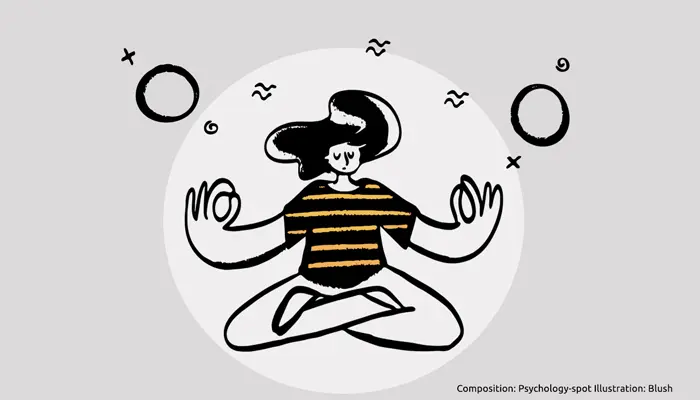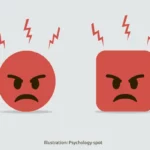
When you look around and see only chaos, suffering, fear, and tension, it’s hard to trust in circumstances. When life seems to be going downhill and nothing is going as expected, trusting is almost an act of faith. It’s more natural for us to despair, curse, and deny what’s happening.
However, it is precisely in those moments when we most need to trust in circumstances and, of course, in ourselves. It is at that moment that we must let go of our worries so we can let go of the burden and be more free. And we can only achieve this if we become aware of the here and now, if we trust in ourselves, and have the certainty that wonderful things await us along our path.
Why is it so important to trust what happens?
Consider that everything around you doesn’t exist unless you perceive it; it has no meaning unless you know it. Therefore, when we perceive something, whether it’s a circumstance, a person, or a simple object, we can’t abstract ourselves from ourselves; we see the world as we are.
As a result, when we know something or someone, we actually rediscover ourselves. When we perceive something, we know ourselves through it. Thus, a miracle occurs: the more we delve into our circumstances, the deeper we can reach within ourselves. At the same time, the more we search within ourselves, the better we can understand our circumstances. Because everything is inextricably linked.
The moment you begin to trust, without resistance, it’s as if all the pieces of a puzzle fit together. Until that moment, your worries, attachments, and emotions only allowed you to see the tangled web hidden behind the tapestry—it’s as if you were looking from below. However, when you learn to flow, everything makes sense because you can see the tapestry head-on, and you can appreciate situations from a broader perspective. This broadens your understanding of life and yourself.
If you look around without resistance, you will reach your interior.
A Taoist principle states: “Learn to trust what is happening. If there is silence, let it grow, something will emerge. If there is a storm, let it rage, it will calm.” The key is to become an attentive spectator, without constantly intervening, because doing so only blocks the process.
This is what is known as “nonresistance.” Although it’s a difficult principle to put into practice because we’re so used to fighting for control, resisting involves clinging to suffering, to situations that cause us stress, and to the toxic people we associate with.
A person who resists not only opposes change, which is a constant in life, but also loses faith in their abilities. Resisting change implies that you don’t trust your ability to cope with this new situation, so, ultimately, it’s an act that denotes fear and insecurity.
It’s worth clarifying that nonresistance doesn’t mean becoming passive spectators of our lives or submitting to the will of others. It doesn’t mean letting circumstances drag us down, relinquishing our power of choice. The concept of nonresistance is linked to “Wu Wei,” which means not forcing but learning to flow, so as not to remain stuck in the circumstances that harm us.
Nonresistance is letting go of our fears and suffering, surrendering, and stopping fighting. In this state, we immerse ourselves completely in the circumstances, without thinking, without doing, just being present. In this way, we learn to trust life and its process, we learn to trust ourselves, with the certainty that, sooner or later, everything will be all right.
The practice of nonresistance gives you the opportunity to pause for a moment, connect with your inner self, and identify how you feel and what you need. Once you’ve identified the emotions that trouble you, stop clinging to them; release them. When you change your thoughts, your reality will change. You just need to trust.
Five basic principles for learning to trust what happens
1. Take the time you need. When you have time to reflect, you can see more clearly the essentials of yourself and others. Remember that when you go through life too fast, your own speed stuns you. The more pressing your feelings are and the more tormented your worries, the more you need to spend time with yourself.
2. Let go of the urge. Don’t force yourself; let everything flow. The more you let go of that obsession with controlling everything, the more open and receptive you will be, and the more easily you will know what is happening around you. Taoism teaches us that ” when you don’t understand what someone is saying, don’t follow their every word. Surrender and become quiet within to listen to your deepest self .”
3. Seek calm. One of the most valuable skills you can learn in life is to retreat within yourself and calm down. When a person feels calm, complex things become simple, because they are able to clear the cloud of emotions that prevented them from seeing things clearly. When you seek calm, you connect with yourself and understand what you truly want and need.
4. Let go of everything unnecessary. A Taoist principle states that “only when you let go of what you have, do you receive what you need.” In our society, we are so attached to things and people that we fail to connect with our deepest selves to understand our true needs. However, happiness doesn’t come from anything that wears out, breaks, or stops working. Therefore, only when we let go of the superfluous can we discover what makes us happy.
5. Simplify. Every situation, no matter how vast or complicated, began simply and small. From relationship problems to wars, all had small beginnings. Therefore, the key to solving many of the problems we face in our lives is to go back and recognize the beginnings.
How to apply these principles to your daily life?
The ultimate goal is that, through circumstances and without resisting them, you can connect with your deepest self, regaining self-confidence and understanding what you need to live more fully.
– Look around you and delve within. The first step in learning to trust what happens is to become an attentive observer. Look around you, observe the circumstances and the people with whom you share your daily life. Don’t criticize or judge, just observe. Try to recognize the way these people are and understand the circumstances that surround you. You will immediately recognize the feelings they generate in you and in others. Don’t reject them or try to push them away; just let them flow. Acknowledge the existence of pain, anger, frustration, or sadness. Remember that at this point, it’s not about understanding, it’s simply about feeling.
– Take charge. Don’t try to blame anyone for what happens, because doing so will only fuel more negative feelings. It’s also not about blaming yourself, because that will only add to the internal burden you already carry. Instead, take responsibility from this moment forward. The past no longer exists, but you can write the present. Take charge and change what bothers you. Transform your reality so you can live more harmoniously. Move forward without burdens or resentments, open to life’s new experiences.
Trust what is happening because it is a gift, pearls of wisdom you can use to grow and understand yourself better. Allow circumstances to unfold before your eyes without resistance. Just trust…




Leave a Reply